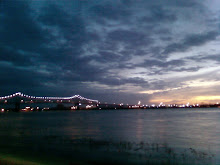The architecture of urbanism is the architecture of humanity, of small scale, of detail and attention to the individual who inhabits the environment:

(Do your best to ignore the shade trees which have no place in a downtown area.)
Opposed to this older school of urban design is the more recent architecture of the suburban paradigm - inherently anti-urban, anti-human, and large scale, designed to the letter and intent of a parasitical host of regulations, rules, stipulations, and covenants which have been imposed upon us from on high from a government which allegedly only has our best interests at heart:

($2.80/gallon...mmm, the daze of cheep petrol...)
Regulations of every and any sort, propagated by the state, produces an environment which is inimical to normal human life. Ostensibly enforced for purposes of safety, health, and welfare, modern subdivision regulations render traditional forms of urban development more or less illegal (unless the developer is politically adept enough to obtain the sufficient waivers). The intent is to create socioeconomically segregated environments in which only the affluent can afford to inhabit, given the slew of sunk and recurring costs involved in suburban habitation. The raison d'etre of fascism is to further the interests and increase the assets of the elites at the expense of the lower classes. Such is the barely concealed purpose of the suburban paradigm.
The despoliation of our countryside by the onslaught of what is, in the end, a fundamentally unsustainable disgusting suburban morass is bad enough. It is most distressing, however, when the anti-urban, anti-human paradigm is inflicted on our central core areas:

The architecture and urbanism (or rather, lack thereof) of fascism is fundamentally the architecture of power, whether that be corporate or State. With power, the private and the individual, celebrated so well on the small scale, is discarded and jettisoned aside in the large scale glorification of the collective and the public.
To stand in the shadow of these gigantic structures is prone to humble and humiliate the mere mortal. These buildings pose the blank sterile walls of bureaucracy to the street, killing the life of the unregulated public sphere and containing it within the stormtrooper controlled confines of the marble labyrinth.
For fundamentally, the anti-urban revolution is about control - control of space, of where people may live and work (zoning), of how they will travel to work (by auto, of course), of what types of dwellings they may occupy (preferably single family detached, unless you are Black, in which case it's cheap, deteriorating apartment stock for you), and most of all control of the Other - circumscribing heavily where that Other will live, work, and travel, and in what few interfaces he may be permitted to mingle with outer society.
The urban centers have been left to the Other, since the urban centers were not designed with control in mind, and thus they have been left to a people which are seen to be criminals at birth. In any case, the dickheadery will always prefer their gated community and exclusive neighborhood - perhaps the ultimate harbingers of the urban fascism of our modern age.
Can't come into contact with "those people", you know, unless they cut the grass or clean the kitchen.
Thankfully, in every city there are a few hardy souls who have made a stand against the decay and death of urbanism. Often they occupy the "eclectic" inner neighborhoods which have resisted the mass forces that have worked on all sides to eviscerate the cities and transfer their vital elements to perfectly cultivated and controlled suburban greenfields.
In the future on this blog I will come to profile one of these neighborhoods - the neighborhood in which I live.
Amerikans adore control and despise 'clutter' in their lives - that is their regrettable trait as a people. But it is this very 'clutter' that makes this nation great - that makes freedom viable, creates diversity of experience, and renders innovation possible.
Woe be this country for its rejection of its greatness, and its embrace of the sordid counterfeit false comfort of State power.



No comments:
Post a Comment